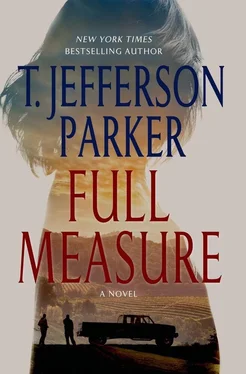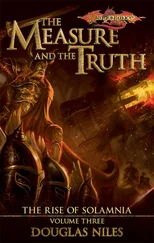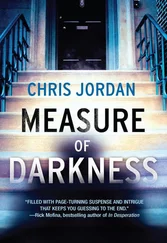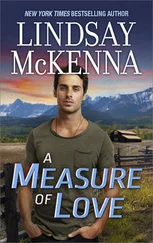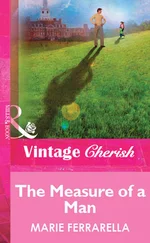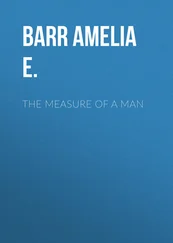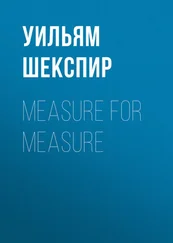Patrick let go the rope and pulled on Ted’s jacket and felt his brother’s legs pumping and his feet flailing against the hull. Ted panted with this exertion and Patrick put his shoulder down and latched his free arm around Ted’s big neck and pulled. He felt Ted’s heavy exhales on his skin and he crouched for lifting power. There was a moment he thought he might go over, rather than Ted come in, but then Patrick felt his brother’s legs stop moving and a sudden lightness to him. Patrick pulled with all his strength and Ted came up. Patrick slipped and hit his butt hard as Ted surged in and flattened him. They screamed and cursed, fighting for breath, Patrick with the broken butt of the rod still up and the line tight to the fish, Ted crushing the breath out of him. Patrick was weak with suffocation and laughter by the time they got unraveled.
It took Ted another twenty minutes to get the fish in, a bruising red snapper from the rocky depths, twelve and a half pounds according to the Boga Grip that Patrick deployed from his tackle box. Patrick took a dozen pictures of Ted and the fish. Both men were still breathing hard when Patrick pushed the camera back into his shirt pocket and buttoned it.
“We gotta take this home for dinner,” said Ted.
“I’d say so.”
“You’ll make a good guide, Pat. Maybe I could be your first mate.”
Patrick muscled the spent fish into the cooler in the hold and closed the lid. He had put in a block of ice just in case. Patrick loved being prepared for things, as he was in Sangin, twenty-four hours a day, even on the burn shitter, even in his sleep. “I’d like that.”
“You don’t need a mate on this little boat, though.”
“I’ll have bigger ones someday.”
“I’d probably screw up.”
“No, you wouldn’t, brother. Look at that fish.”
“Okay, Pat — you and me on a boat, fishing and making money and having fun. Now I got something to look forward to. I’m cold.”
“Get that jacket and shirt off.”
Patrick worked off his jacket and handed it to Ted then started up the Mercury. “Hold on, big brother.”
The sun hung orange in the west as they rode back to the ramp. Ted sat on the aft bench and every time Patrick looked back he was shivering in the too small jacket but still chattering away. Patrick was used to him not speaking for days or weeks, then unleashing a river of words, and now the river came.
“But you know, Pat, there’s this other woman who’s a mystery and I really like her, too. Lucinda. She called Friendly Village Taxi like over two weeks ago and I got her. And she’s called other times — either Tuesdays and Thursdays. We’ve gone to the market, the pharmacy, the dry cleaner, Joe’s Hardware, and either Las Brisas or Rosa’s for takeout. She doesn’t hardly talk. Doesn’t take her sunglasses off, so maybe she’s hiding something. I think she’s troubled. I feel it but I’m not sure what it is. She lives in a condo with flowers on the balcony. She’s very pretty and healthy-looking but really unhappy. She has great sadness. I’m driving tomorrow just in case she calls. I can’t take much more of Dad. And I know he can’t take much more of me. I wonder if Mom will do that snapper Veracruz style.”
Under a gray-bellied sky Evelyn Anders began her walk from the post office on Mission Road toward the largest shopping center in Fallbrook. She took long strides and counted each one. It was six on a Tuesday evening and the traffic was steady and swift. She paused to look at the burn marks left by the flares that had marked the place where George Hernandez was killed three weeks ago — right there in the first southbound lane — carbon-gray flowers scorched into the asphalt. She thought she saw a bloodstain, too. Was that even possible? Oil, she thought, surely. Or transmission fluid.
It was downhill in this direction and ahead she saw the proud retailers of the republic: the KFC bucket in the sky, Albertson’s and Blockbuster and Baskin-Robbins, Verizon and AT&T, Taco Bell and Carl’s Jr. and Payless Shoes. And so on. She was long resigned to franchise America here in Fallbrook, and often patronized some of these places just like everyone else. But her heart stayed in the older part of town, back on Main with history and art galleries and public sculpture and most things mom-and-pop, such as Anders Wealth Management. And I’m the mom, she thought, class of ’85 to Mom in the blink of an eye.
After step one hundred and fifty-five she stopped and looked back. She was about halfway to the shopping center, and sure enough, not twenty feet from where George had been killed, a young woman with a stroller and two very young children waited, ready to cross. Another mom, thought Evelyn. The woman was already off the curb and onto the asphalt of Mission Road, waiting to run for the relative safety of the median strip. Her hair lifted each time a car sped by.
Evelyn watched her take two little hands in one of her own, grab the stroller handle midway, and push off. The hole in the northbound traffic looked good. The woman locked her stroller arm and bent her back and dug in with her legs. The children hustled along tethered and unafraid. The woman’s face was steadfast at the approaching cars and her hair stood out behind her. The stroller bounced along and Evelyn pictured a tire coming off but before it could happen the woman was standing in the safe zone, cars roaring by on either side. The problem with this median Evelyn knew, was that it was also a turn lane, so you never knew when a harried driver might swing in. Rushed drivers were looking for cars in front of them, not people. Evelyn saw that a lighted crosswalk right there, activated only when someone needed to use it, could save a life.
She continued her way downhill to the next safe place to cross, which was the traffic signal way down at Ammunition. She had had no idea how far it was between crosswalks until walking the distance herself. Looking back toward the post office where she’d started — what? — a half a mile?
She waited out the light then crossed. She dashed across the wide entrance-exit of the Happy Jug Liquor store — WE SELL LIVE BAIT! — then started up the sidewalk for the climb back up Mission. All of this to get to the trailer park where George had lived, and to where he was returning, in the dark, on the night he died.
Evelyn waved to Iris Cash, waiting at the entrance to the Meadowlark trailer park as planned. With her were George Hernandez’s two young friends, McKenzie and Dulce, who had contacted Cruzela Storm about the show to benefit the crosswalks. Evelyn shook their small hands, then Iris introduced her to photographer Natalie Llanes, who had a nice Canon DSLR slung around her neck. Iris and Natalie positioned the girls for a photograph with the battered Meadowlark sign in the background. Evelyn stood back and watched the two girls smile momentarily, then catch themselves.
Looking past them Evelyn realized she’d never set foot in Meadowlark, though she’d driven by it thousands of times, as had anybody who lived in Fallbrook for long. It was right in the center of town but because it sat in the low creek bed, Meadowlark was easy to miss if you were in a car. She looked at the closely spaced trailers, many colorfully painted, some stout and some slouching. Eucalyptus and palms grew high amid them, and the trailer awnings hung heavy with mandevilla and nightshade and jasmine. Satellite dishes stood on nearly every roof, sometimes two or three of them, old models as big as flying saucers and newer ones small and sleek.
Iris waved Evelyn over to pose with McKenzie and Dulce under the Meadowlark sign. Natalie wanted the pretty evening sky as a backdrop. The girls had obviously dressed for this and Evelyn sensed their nervousness. McKenzie wore a dress and Dulce a hint of rouge. Their black hair shone even on the gray day. They were twelve. Natalie, the photographer, chattered away with them in Spanish.
Читать дальше
